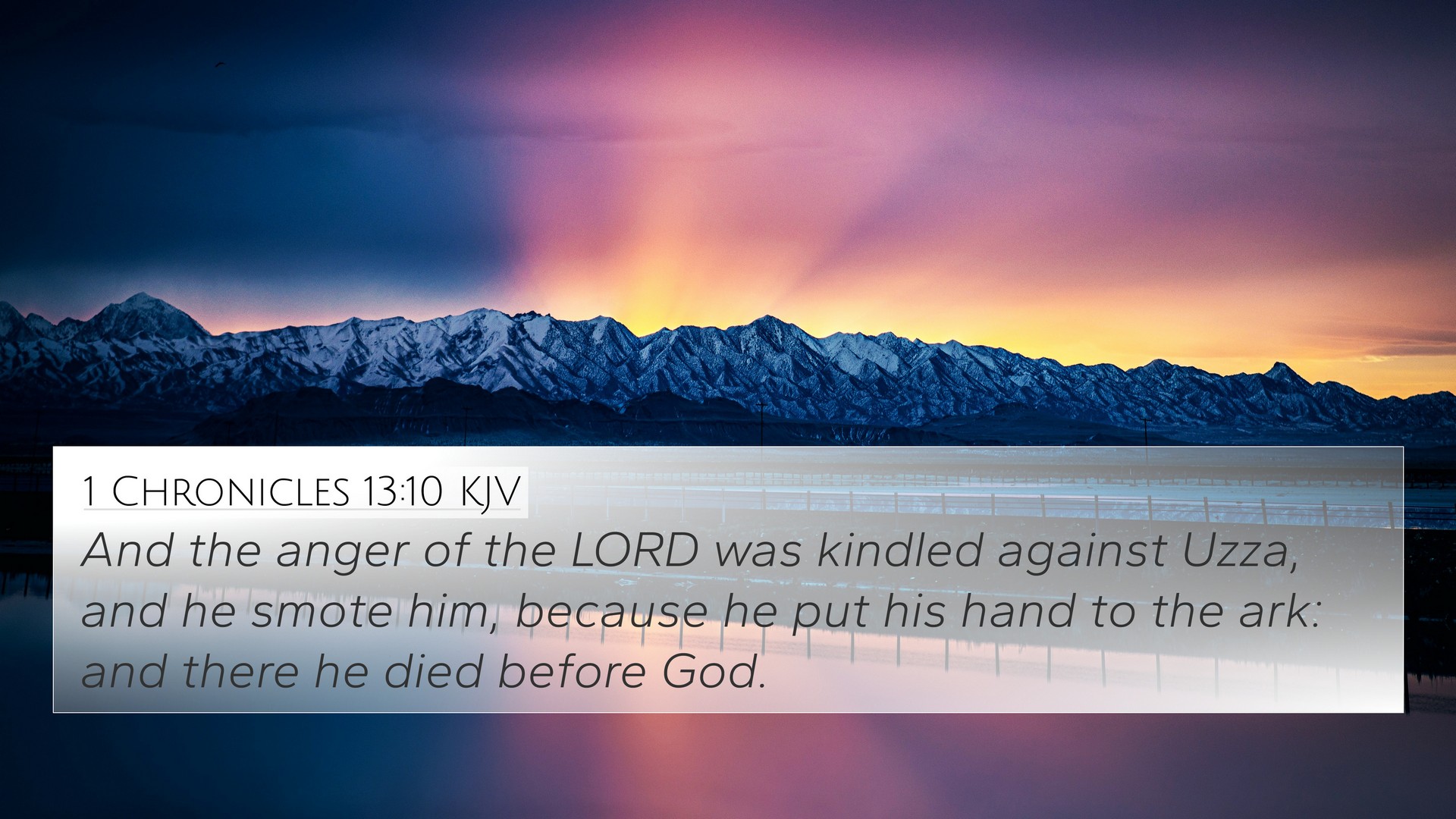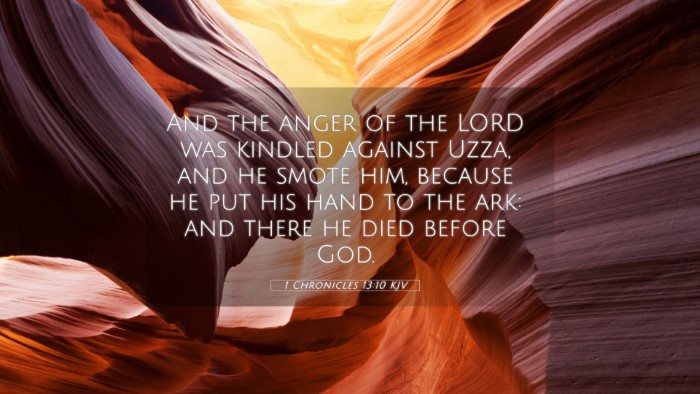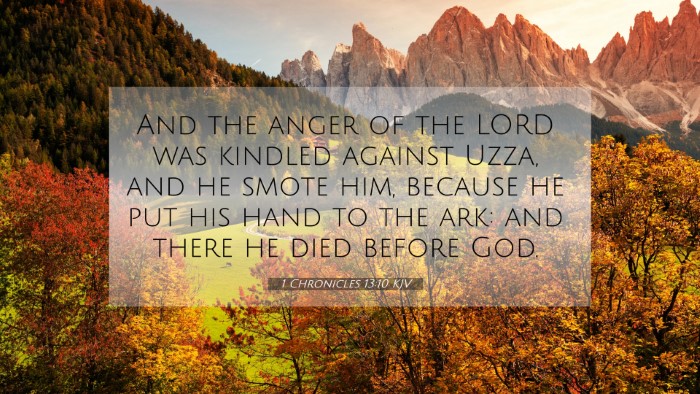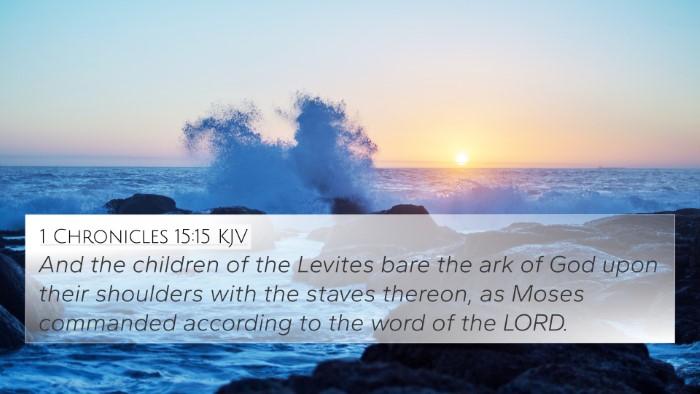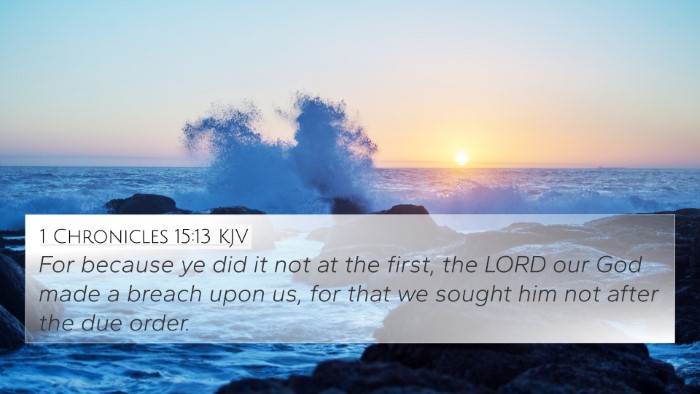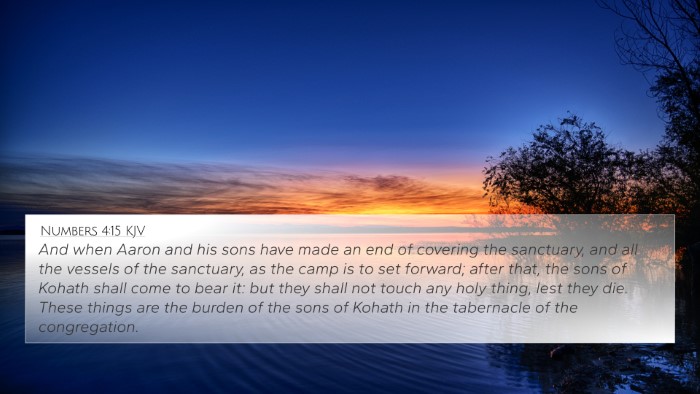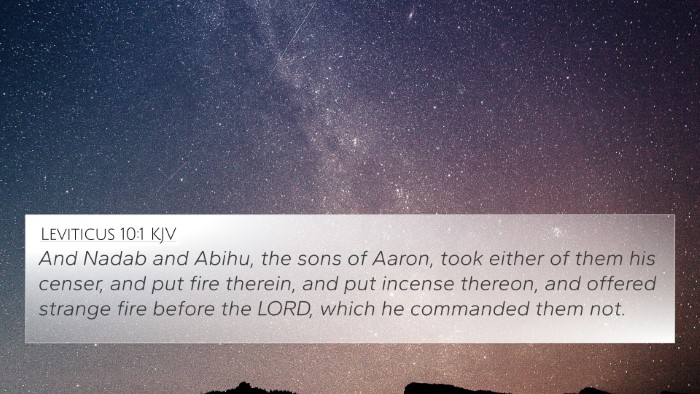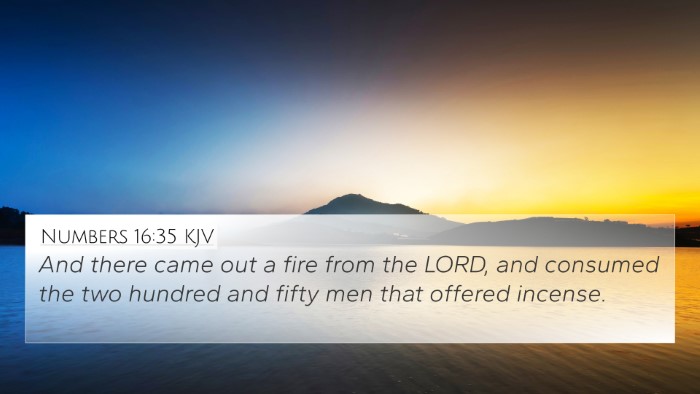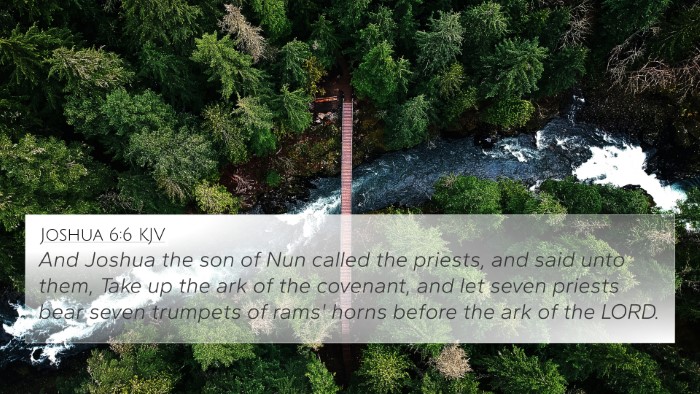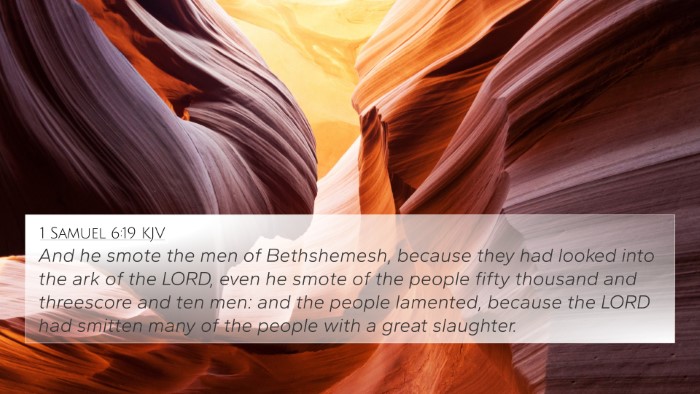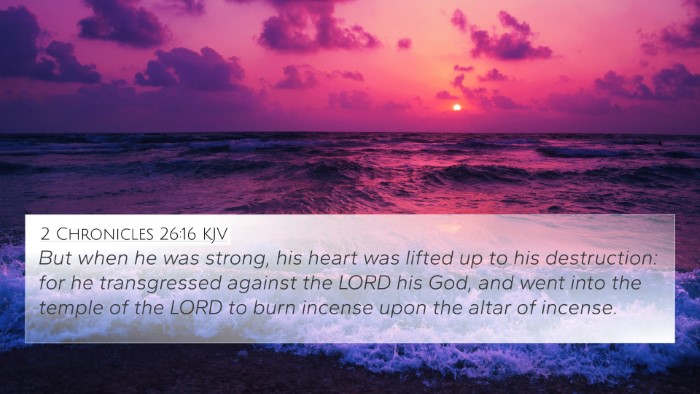Understanding 1 Chronicles 13:10
The verse 1 Chronicles 13:10 states:
"And the anger of the Lord was kindled against Uzzah; and he smote him, because he put his hand to the ark: and there he died before God."
This verse refers to a significant event in biblical history, reflecting God's holiness and the seriousness of handling sacred things. Below, we summarize the meanings based on insights from public domain commentaries.
Summary of Commentary Insights
In light of the combined interpretations from Matthew Henry, Albert Barnes, and Adam Clarke, we recognize several key aspects regarding the meaning of this verse:
-
Divine Holiness:
Each commentary emphasizes God's holiness and how it necessitates respect for His commands. Uzzah's action, though seemingly benign, directly contradicted God's explicit instructions about the Ark of the Covenant.
-
Consequences of Disobedience:
Henry highlights that God’s immediate judgment serves as a warning against irreverence towards sacred things. Uzzah's death symbolizes the severe repercussions for disobedience in matters concerning divine instructions.
-
Human Presumption:
Barnes points out that Uzzah presumed to assist God, not recognizing that God's ways and means of protection are perfect and unchallengeable. This act illustrates a misalignment with God’s intentions.
-
Symbolism of the Ark:
Clarke elaborates that the Ark of the Covenant represented God’s presence and His covenant with Israel. Touching it symbolically represented a breach of the sacred covenantal relationship, which should evoke utmost reverence.
-
Learning from Uzzah's Mistake:
The collective insights urge believers to glean lessons from Uzzah’s fate, recognizing the importance of adhering to God's commands and understanding the context of Biblical laws.
-
Importance of God’s Instructions:
All commentaries reiterate that God's instructions were clear and that adherence to them is crucial, not just in ritual matters, but in everyday living, demonstrating the seriousness of obedience.
-
Historical Context:
The historical account encourages readers to consider the cultural context in which these events took place, helping them appreciate the sacredness attached to the Ark.
Cross-References to 1 Chronicles 13:10
In the study of scripture, it is essential to connect verses to understand their broader implications. Here are some cross-referenced verses related to 1 Chronicles 13:10:
- Numbers 4:15: Discusses how the Kohathites were to carry the Ark without touching it, reflecting God's command about reverence and proper procedure.
- 2 Samuel 6:6-7: Offers a parallel account of the event, emphasizing Uzzah's actions and God's reaction, which expands on the understanding of divine judgment.
- Exodus 19:21-22: God commands Moses to set boundaries around Mount Sinai, underlining His holiness and the need for reverence when approaching Him.
- Leviticus 10:1-3: The deaths of Nadab and Abihu for unauthorized incense offerings reiterate the principle of adhering strictly to divine instruction.
- Isaiah 6:1-5: Isaiah’s vision of God underscores the holiness of the Lord, mirroring the theme of reverence seen in Uzzah's situation.
- Habakkuk 1:13: States God’s purer eyes cannot look upon evil, enhancing the understanding of why Uzzah’s actions elicited such a severe response.
- Hebrews 12:28-29: Explores the concept of serving God acceptably with reverence and godly fear, correlating with Uzzah’s failure.
Connections with Other Biblical Themes
1 Chronicles 13:10 illustrates crucial themes prevalent throughout the Bible:
-
The Fear of the Lord:
Fostering a healthy fear and respect for God's commandments is an overarching theme derived from this verse.
-
Holiness in Worship:
This passage prompts reflections on how worship should be conducted—pointing towards reverence in our approach to God.
-
Obedience to God's Word:
Cross-referencing texts reinforces the call for obedience through various accounts in the Bible, cascading into the New Testament's teachings.
-
The Nature of Divine Justice:
This event emphasizes the nature of divine justice—quick, deliberate, and fundamentally tied to His holiness.
Conclusion
1 Chronicles 13:10 serves as a powerful reminder of God's holiness, the seriousness of obedience, and the importance of proper reverence in our relationship with the divine. Through comparative biblical analysis and thematic connections, we can deepen our understanding of this event and its implications on our spiritual journey.
